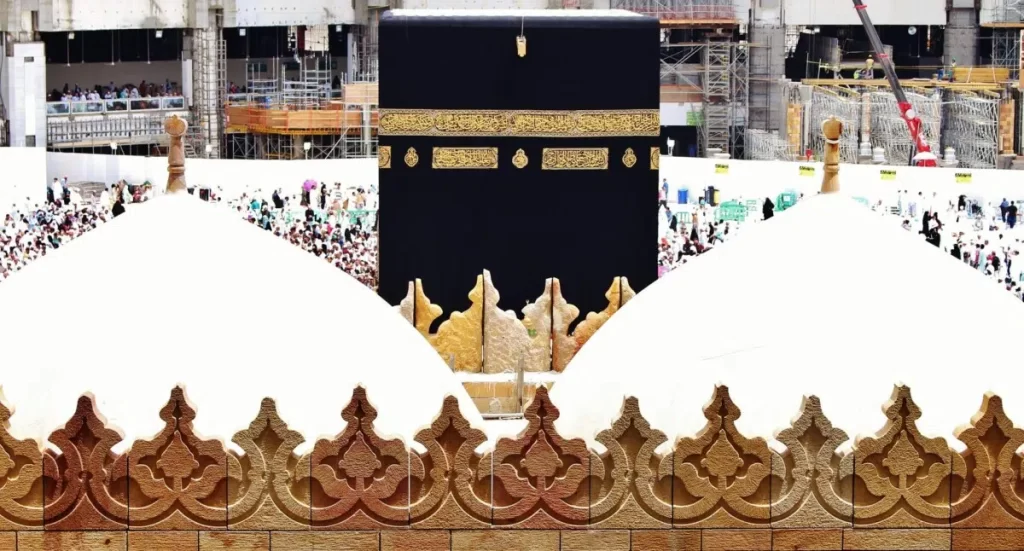The Sacred Ground of Hazrat Ibrahim (AS): A Place of Sacrifice for Allah

The Sacred Ground of Hazrat Ibrahim (AS) A Place of Sacrifice for Allah
Introduction
The narrative of Hazrat Ibrahim (AS), recognized as Abraham in the Judeo-Christian tradition, carries deep meaning and importance within the Abrahamic religions. One of the pivotal events in his life is the act of sacrifice, where he demonstrated unwavering devotion and obedience to Allah’s command. In this blog post, we will explore the place where Hazrat Ibrahim (AS) performed this sacred sacrifice, its historical and religious importance, and the enduring lessons it imparts.
The Command of Sacrifice
The story of Hazrat Ibrahim (AS) is found in the holy books of Islam, Christianity, and Judaism. In the Quranic narrative, Hazrat Ibrahim (AS) received a divine command in a dream to sacrifice his beloved son, Hazrat Isma’il (AS), as an act of obedience to Allah’s will. This profound test of faith challenged the very core of Hazrat Ibrahim’s devotion.
The Place of Sacrifice: Mount Arafat (Mina)
Islamic tradition holds that Hazrat Ibrahim (AS) received the command to sacrifice his son while in the sacred city of Mecca, specifically at the plain of Arafat (Mina), located just a few kilometers to the east. It is important to note that while the Quran does not explicitly mention the location, Islamic tradition and historical accounts have identified the area around Mecca as the site of this significant event.
Religious Significance
The place where Hazrat Ibrahim (AS) performed the sacrifice holds immense religious significance for Muslims, as well as for people of other faiths. Here are some key aspects of its importance:
Submission to Allah: The act of sacrifice exemplifies absolute submission to Allah’s command. Hazrat Ibrahim’s unwavering faith and willingness to sacrifice his son serve as a powerful example of trust in divine wisdom.
Hajj Pilgrimage: Arafat (Mina) is a central location during the annual Hajj pilgrimage, one of the Five Pillars of Islam. Pilgrims gather at this sacred site to seek forgiveness, pray, and reenact the rituals associated with Hazrat Ibrahim’s sacrifice.
Eid al-Adha: Eid al-Adha, also known as the Festival of Sacrifice, commemorates Hazrat Ibrahim’s obedience and Allah’s mercy. Muslims worldwide participate in this holiday by performing their own sacrificial rituals, symbolizing their commitment to submission.
Interfaith Connection: The story of Hazrat Ibrahim (AS) and the act of sacrifice resonate with the values of faith, obedience, and devotion shared by Judaism, Christianity, and Islam. This connection fosters understanding and dialogue among these Abrahamic faiths.
Lessons from the Place of Sacrifice
The place where Hazrat Ibrahim (AS) performed the sacrifice offers valuable lessons for people of all faiths:
Absolute Faith: Hazrat Ibrahim’s unwavering faith in Allah’s command is a testament to the power of belief and trust in divine guidance, even in the face of seemingly impossible tasks.
Obedience and Submission: The act of sacrifice symbolizes complete submission to the divine will. It teaches us the importance of surrendering our desires and ambitions to follow a higher purpose.
Mercy and Compassion: Allah’s intervention in providing a ram as a substitute for Hazrat Isma’il (AS) illustrates the concept of divine mercy and compassion. This narrative underscores the idea that Allah does not burden us beyond our capacity.
Interfaith Unity: The story of Hazrat Ibrahim (AS) is a unifying element among the Abrahamic faiths, emphasizing shared values and beliefs that can promote harmony and cooperation among diverse religious communities.
Conclusion
The place where Hazrat Ibrahim (AS) performed the sacrifice for Allah is a site of profound religious and historical importance. It serves as a symbol of unwavering faith, obedience, and submission to the divine will. The lessons derived from this sacred event transcend religious boundaries and offer valuable insights into the universal themes of faith, devotion, and compassion. As people of diverse faiths and backgrounds, we can draw inspiration from Hazrat Ibrahim’s example and strive to emulate his commitment to divine obedience in our own lives.
For More Related Articles Browse Our Website Blogster.pk
For social Connection You can also Visit and follow our Social media Platforms
Facebook , Instagram, Linkedin, Pinterest, Quora, Twitter, Youtube.






